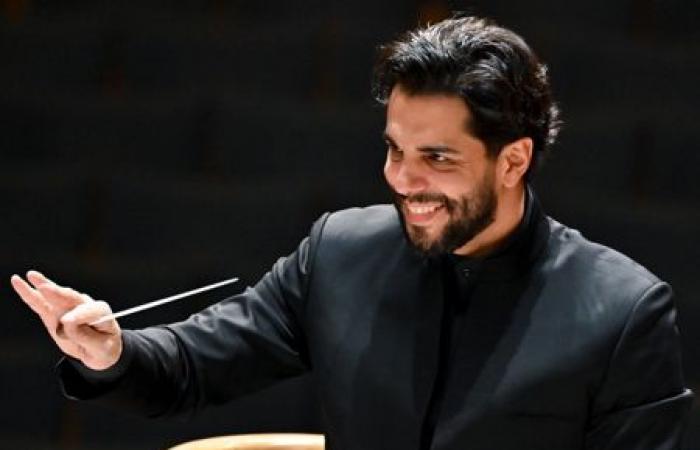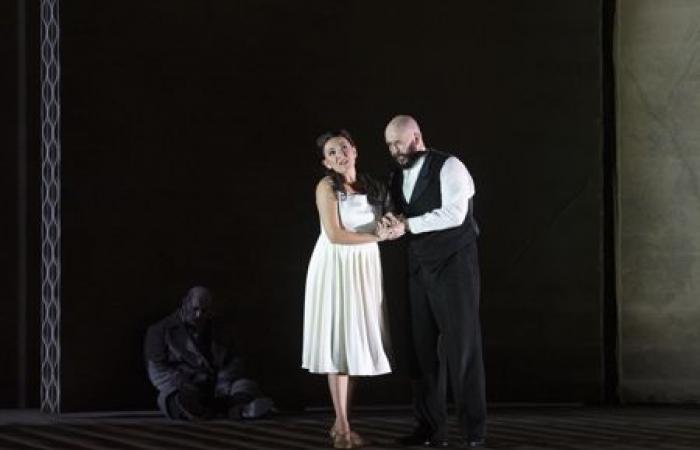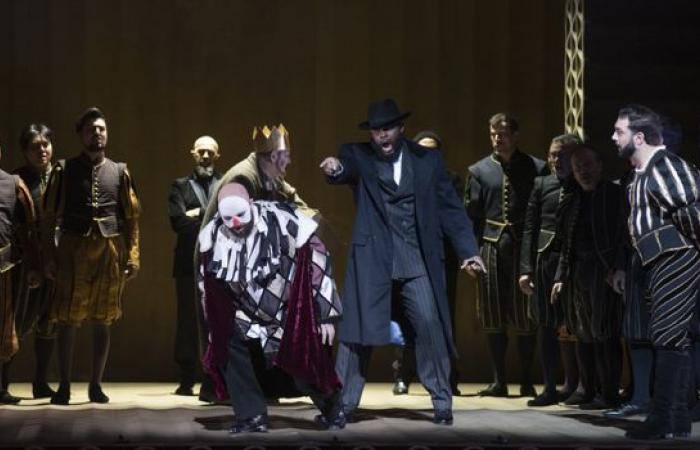We have often deplored the rarity of true Verdian leaders, to this day, while there is no shortage of Puccinians and others. With the entry into the running in the pit of the Bastille Opera by Domingo Hindoyan, a Venezuelan living in Switzerland, we can rejoice at finally having one, whose intense direction knows not to put itself in the light of drought and contemporary violence and undulate all the eddies of Verdian discourse, the psychological contrasts that the music must know how to express, the force of the drama and the heartbreaking lyricism: maintaining a perfect throughout the story balance, with a lucidity to which the Opera Orchestra responded, delivering a superb performance. And everyone knows how captivating this sometimes rebellious formation can be when it is in symbiosis with the leader.
Domingo Hindoyan © Chris Christoloudou
Hindoyan, from the anthill of talents emerging in Venezuela in The Systemfirst a violinist then assistant to Barenboïm at the Berlin Staatsoper, is certainly not a beginner: in his forties, conductor of the Liverpool Philharmonic Orchestra since 2021, guest of the most prestigious groups, he has heralded the great return of a Verdi finally understood on the Parisian stage, and received a triumphant welcome from an overwhelmed audience, embraced by the force of the musical drama which had just been experienced.
Public overwhelmed, therefore, not only by the conductor's baton, and his understanding with the orchestra and the choirs, perfect (the remarkable Ching-Lien Wu is at work), but also by an exceptional set which made this resumption of Rigoletto proposed by Claus Guth in 2016 a moment of intense emotion. First of all, a real triumph for Roman Burdenko in the title role. Wide and powerful voice, formidably expressive, harsh, intense presence, as if stiffened by hatred, less grotesque than other interpreters of the role who force his buffoonery. A stature, a clarity of expression which make him a major presence, and which we are delighted to find in the Triptych next May.
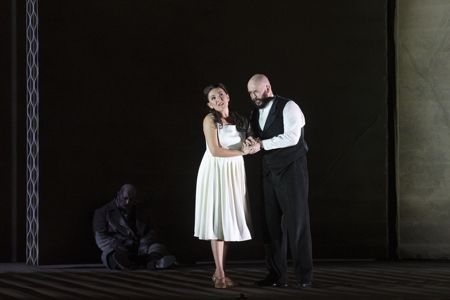
© Benoîte Fanton – OnP
Beautiful Parisian debut as Gilda for Rosa Feola (1), a coloratura soprano who has already demonstrated her clear and fine high notes in this role on numerous stages, at La Scala, at the San Carlo not to mention the Met and other prestigious world stages. The follow-up of the performances will surely help him to accentuate a somewhat effaced presence, undoubtedly held back by the slight anxiety of receiving for the first time the reception of the Parisian public, which was fortunately enthusiastic. Facing her, also a newcomer, Liparit Avetisyan, a Duke of Mantua in full possession of dazzling means, alive, vibrant and launching his famous tunes with astonishing sureness. To put on the planet the greatest tenors, who are always rare pieces in this chess game that is opera.
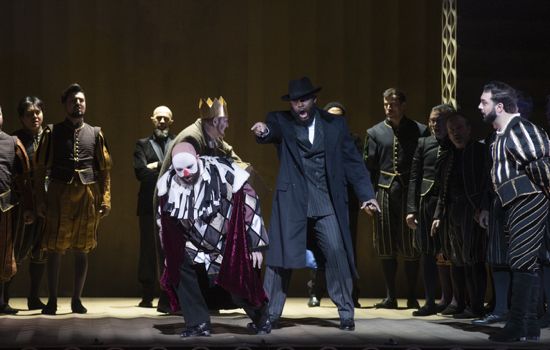
© Benoîte Fanton – OnP
Around them, there is no flaw in their partners, starting with the extraordinary Sparafucile by Goderdzi Janelidze, enormous presence, enormous voice and chilling indifference. Just like Blake Denson's brief but gripping Monterone. Aude Extrémo in Maddalena style Lola Montes or Cabaret and Marine Chagnon in the too brief Giovanna do not deserve it. And they all occupy their place perfectly.
Ultimately quite sober, Claus Guth's direction seems to this day to have said everything it had to say and that's all the better. It is as if emptied of its excesses, which are moreover anecdotal, purified, and all that remains is an assembly of cardboard boxes designed by Christian Schmidt, which indicates how vain this sordid drama is and that everything collapses there, purity, love, power, debauchery. Verdi's pessimism.
Jacqueline Thuilleux


